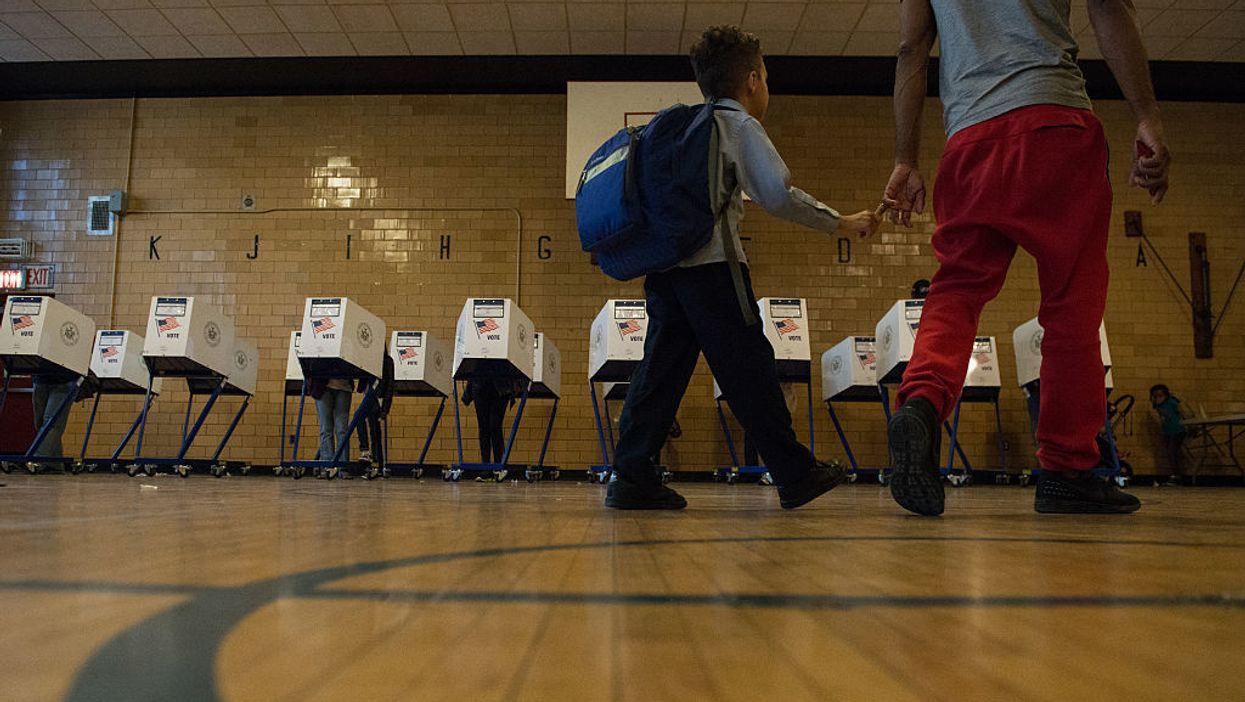Krucoff is a commercial real estate broker and an independent candidate to be the non-voting delegate from the District of Columbia in the House of Representatives.
A month after officially registering my candidacy for Congress in 2020, I joined a conference call to hear renowned political historian Michael Barone discuss his book "How America's Political Parties Change (And How They Don't)." The topic made me anxious about being an independent candidate, but the call invigorated me.
The discussion concerned presidential elections, and it was easy for Barone to prove that being a presidential spoiler is counterproductive to candidate and voter alike. But his arguments do not apply to Washington, D.C., a legally disenfranchised city-state where Republicans account for just 6 percent of registered voters.
Though the number of voters nationwide who are not registered as either Republicans or Democrats has markedly increased in the last two decades — both in absolute terms and as a percentage of the electorate — the media and scholars of political science and history remain consistently disdainful of political reform and nonpartisan action. The "Crystal Ball" political forecasters at the University of Virginia ignore the independent trend, although it is plain to see in their data. The Pew Research Center does a more thorough job of justifying their disdain for the self-described non-affiliated by focusing on how most independents actually do "lean" toward one of the major parties — concluding the genuinely independent are only 7 percent of the electorate.
I have news for everyone: Those 7 percent are leaning, too. We all have a bias of some kind. It's OK to lean. Pew starts one section of one analysis of the electorate with "In a two-party system," but we don't have a two-party system. We have a political system that has been monopolized or gamed by the Republican and Democratic parties for more than a century and a half. This duopoly exists in opposition to our Constitution, not as a result of its enactment.
Are we about to re-elect a president who regularly shatters norms? Or is there a chance President Trump will be defeated by another New York norm shatterer, Michael Bloomberg, who is advertising heavily in swing states as he seeks the nomination of his newly adopted political party, while simultaneously snubbing his nose at the traditional opening contests in Iowa, New Hampshire, Nevada and South Carolina? How similar, or different, are the desires for change that each of these two billionaires are tapping into?
In the face of the media and punditry's disdain and the billionaire norm shattering, an involved (albeit disparate) cohort has formed to reform our system and make it work better. The reformers are made up of dozens of organizations all over the country.
For the most part, these organizations do not care if our elected politicians attempt to be bipartisan. Good luck with that. Results matter and so far, there are not many at which to point. Rather, reformers are focused on helping our democracy work well by advocating for changes to the rules of the game like ranked-choice voting, redistricting reform, nonpartisan blanket primaries, enhancing campaign finance disclosure, contribution limits, term limits and making voting as simple as possible. Reformers have been successful just in the previous two years in almost a third of the states, including:
Maine adopted automatic voter registration and expanded ranked-choice voting to include federal elections. Hawaii, Nevada and Utah adopted vote-by-mail systems and Pennsylvania made voting from home an option. New Mexico adopted same-day registration and AVR. North Dakota cracked down on lax government ethics. New Jersey, New Mexico and Idaho moved to compel more disclosure of campaign spending, while California set contribution limits in local contests. New York started to permit early voting and New York City adopted RCV for its primaries. Michigan took political mapmaking away from its gerrymandering politicians and gave it to the voters, and Virginia started a similar process.
The media and academics may have personal reasons to ask if we are back in the 1850s or 1930s. Coverage of a storm, no matter how fierce, always seems to get good ratings and higher book sales. Those of us who believe in reform, however, believe that neither the 1850s nor the 1930s will be the decades replicated in the 2020s. Our glasses are half-full. As a nation, we are entering the Reforming Twenties. It's going to be messy. However, if one cares to read the tea leaves, she or he may also see some of us making an Arnold Palmer out of those leaves and the left-over lemon wedges from a nearby New Year's Eve party of disappointed partisans.



















Marco Rubio is the only adult left in the room